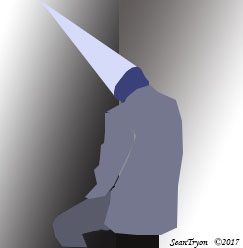Shame & Self-Worth

Shame and Guilt
Shame is often confused with guilt. At times, shame and guilt are used in conjunction with each other or interchangeably. In fact, they are different.
Guilt is a rather concrete concept. Either we are guilty or innocent. It is defined as “the state of one who has committed an offense”. Example: Breaking a window. Shame, however, is more complex. We may experience it in two ways; one is healthy, the other is not.
•Self-reflection or conscious realization of poor behaviors. Example: A child is caught stealing, feels embarrassed and says; “I’m sorry.”
•Self-recrimination (habitual or persistent self- blaming or beating oneself up inside) Example: A worker makes a mistake and then sits for hours that night thinking; “I will never be good enough.”
Shame is Normal
Shame is a healthy emotion that can help shape our ethics, morality and personality. However, it can also have a corrosive effect in our lives. On one hand, it informs us that we have violated an accepted norm and we have “let ourselves or someone else down“. Taken to its’ extreme, shame is the persistent belief that one is somehow defective or unworthy.
Dynamics
- Control
- Perfection
- Blame
- Denial
- Unreliability
- No Talk Rule
- Disqualification
Shame can:
- Fuel an over-developed sense of responsibility.
- Drive us to regularly seek approval.
- Be the motivator to engage or remain involved with relationships that we know are unhealthy.
- Impel to us “do” for or others and to consistently be the giver.
- Push us to sacrifice ourselves to stay entangled, enmeshed and overly responsible because “if we don’t do it, who will?”
- Influence us to give up doing what we know is in our own best self-interest.
- Incite us to continue to live in ways that have not nurtured our own self-growth.
- Trigger personal defensiveness and isolation.
- Provoke us to become distant in personal relationships or from society.
- Underlie depression and anxiety. (Addictions, infidelity, eating disorders, perfectionism and many other problems rest their foundations on shame.)
Counseling
People who live in shame keep it secret from others. They also keep the cause of their shame a secret fearing criticism and exposure. Doing so causes them public and private anxiety.
However, shame-based thoughts, beliefs or behaviors do not need to define anyone’s life. Past experiences may have made it difficult to trust others. Beginning to address what we feel inside and confiding in an empathic listener is the first step to a better life.
“Shame is a soul eating emotion.” – Carl G. Jung
Photo credit: Home page- Martin Bolchover Art and Illustration
This page- Sean Tryon 2017
